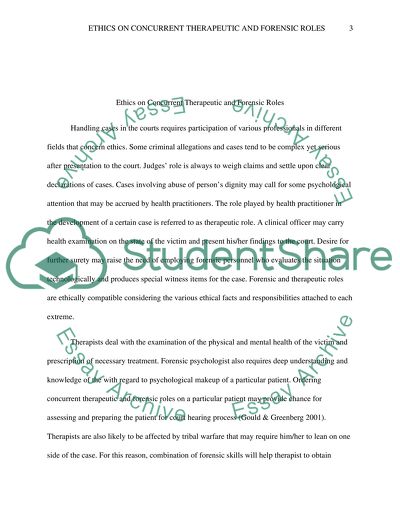Cite this document
(“Therapeutic and Forensic Roles Essay Example | Topics and Well Written Essays - 1500 words”, n.d.)
Retrieved from https://studentshare.org/psychology/1433877-therapeutic-and-forensic-roles-argumentative-essay
Retrieved from https://studentshare.org/psychology/1433877-therapeutic-and-forensic-roles-argumentative-essay
(Therapeutic and Forensic Roles Essay Example | Topics and Well Written Essays - 1500 Words)
https://studentshare.org/psychology/1433877-therapeutic-and-forensic-roles-argumentative-essay.
https://studentshare.org/psychology/1433877-therapeutic-and-forensic-roles-argumentative-essay.
“Therapeutic and Forensic Roles Essay Example | Topics and Well Written Essays - 1500 Words”, n.d. https://studentshare.org/psychology/1433877-therapeutic-and-forensic-roles-argumentative-essay.


